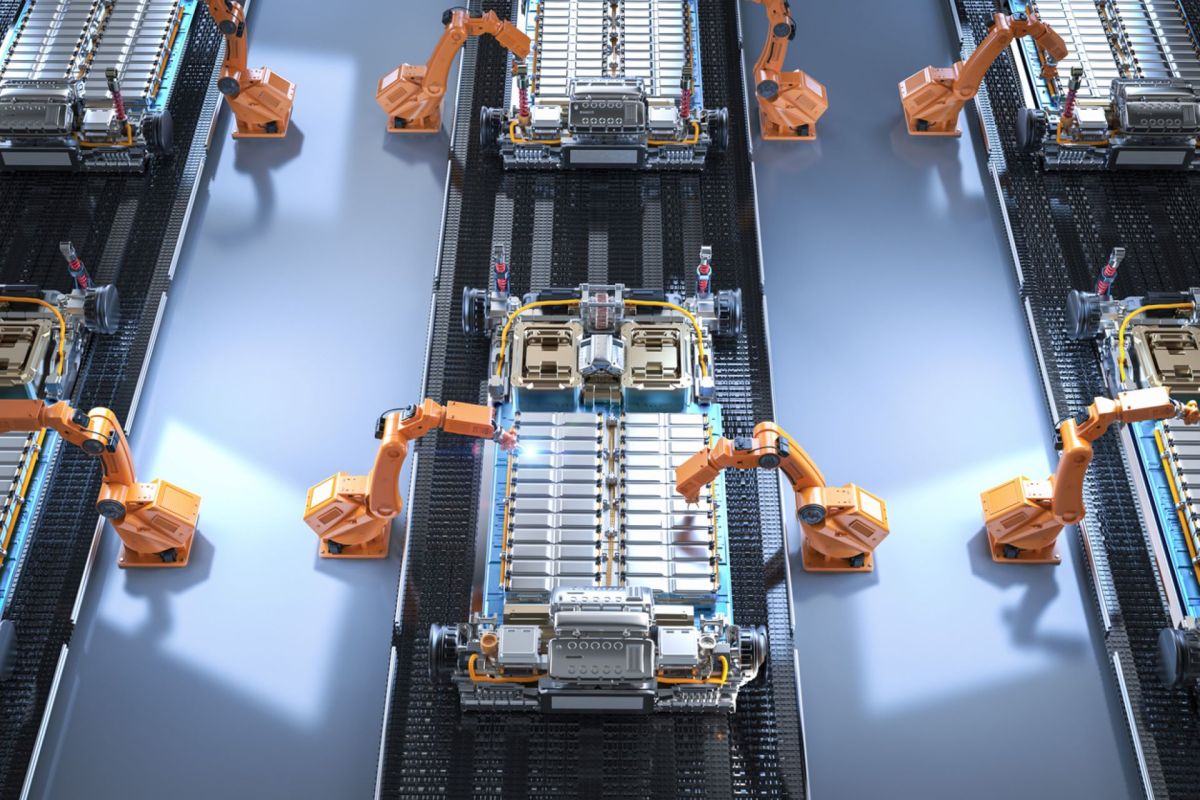One of the biggest speed bumps on the road to mass EV adoption is the use of metals like cobalt in EV batteries. While those metals are ideal for batteries, they have significant downsides when it comes to cost and the impact on people's health and the environment.
However, dependence on those metals may be a thing of the past thanks to MIT researchers who have developed a cheaper and more sustainable option.
According to MIT News, the researchers have designed a new organic material to replace cobalt in the cathode of lithium-ion batteries. The materials needed to produce this type of cathode are already produced in large quantities, and the researchers expect the cost to produce the batteries could be about one-third to one-half the cost of cobalt-based batteries.
Alternative materials like iron — used in lithium-iron phosphate batteries — and other organic materials are promising, but so far, they have all fallen short of cobalt in terms of energy density, conductivity, and storage capacity.
In the new study, MIT researchers showed that the new material can conduct electricity at similar rates to cobalt, and the battery has comparable storage capacity — plus, it can be charged faster than its cobalt counterparts.
"I think this material could have a big impact because it works really well," said Mircea Dincă, the W.M. Keck Professor of Energy at MIT, in the MIT News article.
The impact is big, in large part, because the impact of mining cobalt is big — and devastating.
More than 70% of the world's cobalt is produced in the Democratic Republic of the Congo, per Mining.com. The conditions around any of those mines are reportedly atrocious — an NPR article referred to it as "modern-day slavery."
It's grueling labor. The people working in the mines breathe in toxic cobalt dust while making just a dollar or two a day. It's the only option for many people as the mines have completely dominated the landscape. According to NPR, "hundreds of thousands of people have been displaced because their villages were just bulldozed over to make place for large mining concessions."
Cutting down millions of trees worsens the effects on the region, as does water pollution caused by cobalt mining, which has killed off fish in streams and lakes.
"In this stream, the fish vanished long ago, killed by acids and waste from the mines," said Congo resident Heritier Maloba, per Earth.org.
Government corruption has made it difficult to improve conditions in and around these mines, according to NPR, and the problem is not a simple one because the workers rely on the jobs to feed their families. While it may not be possible to expect all new battery solutions to provide new, safer jobs to these Congolese workers, lowering the demand for cobalt is crucial to avoid incentivizing companies to cut corners to maintain high production needs.
It is critical for the environment and world health to move away from dirty energy sources like coal, oil, and gas — industries that often require workers to face their own health and safety risks — but it needs to be in a way that doesn't create similar problems to the ones those sources cause.
Even though EVs don't produce tailpipe pollution like their gas-powered counterparts, which makes them better for the environment, developments like the one from these MIT researchers are huge for eliminating the dangerous parts of producing EVs. The electric vehicle market still features a lot of demand, so developing better battery alternatives to reduce our dependence on scarce, dangerous metals like cobalt is vital in the years ahead.
Join our free newsletter for weekly updates on the coolest innovations improving our lives and saving our planet.









